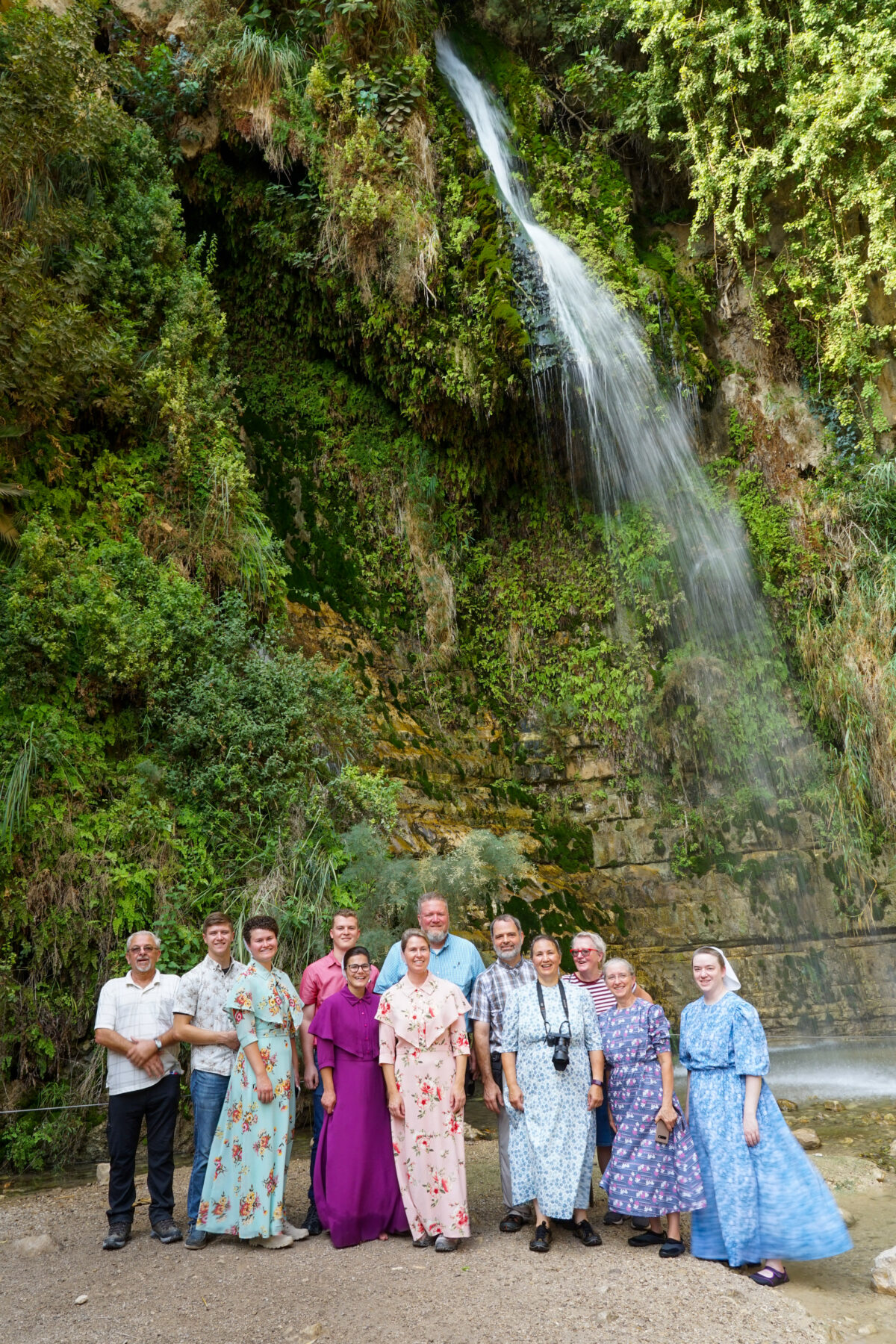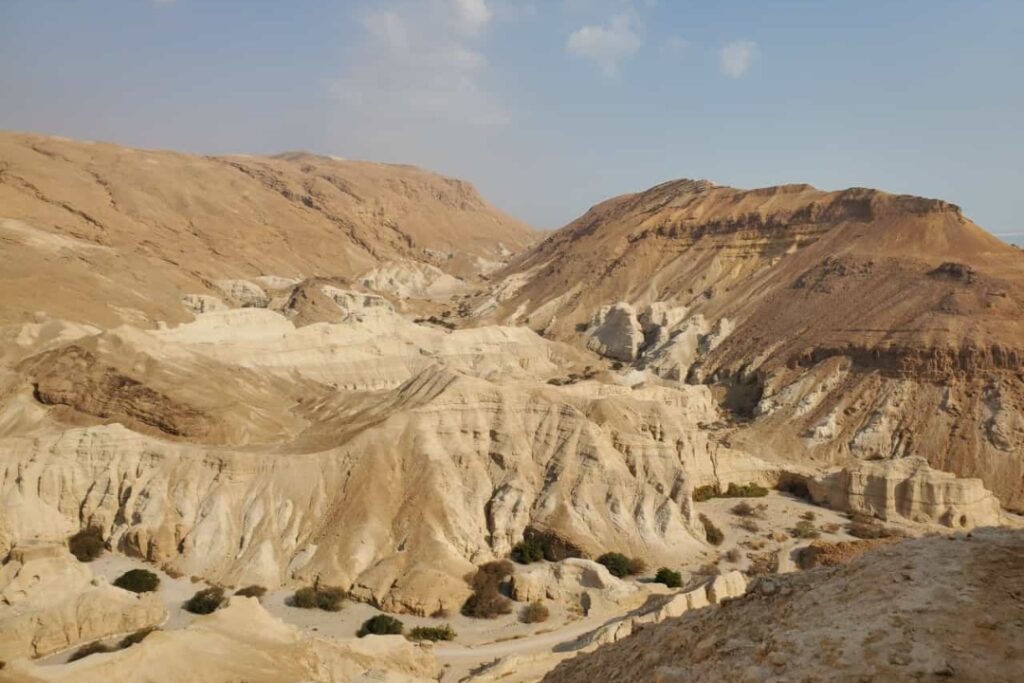
Bro. Willard Hackman led our group in a Lord’s Day morning meditation at a lookout point along the route to Ein Gedi. After drawing our minds to God’s promises to his saints listed in the book of Hebrews, we were encouraged with the thought of us also being included in the promises if we remain faithful to God.
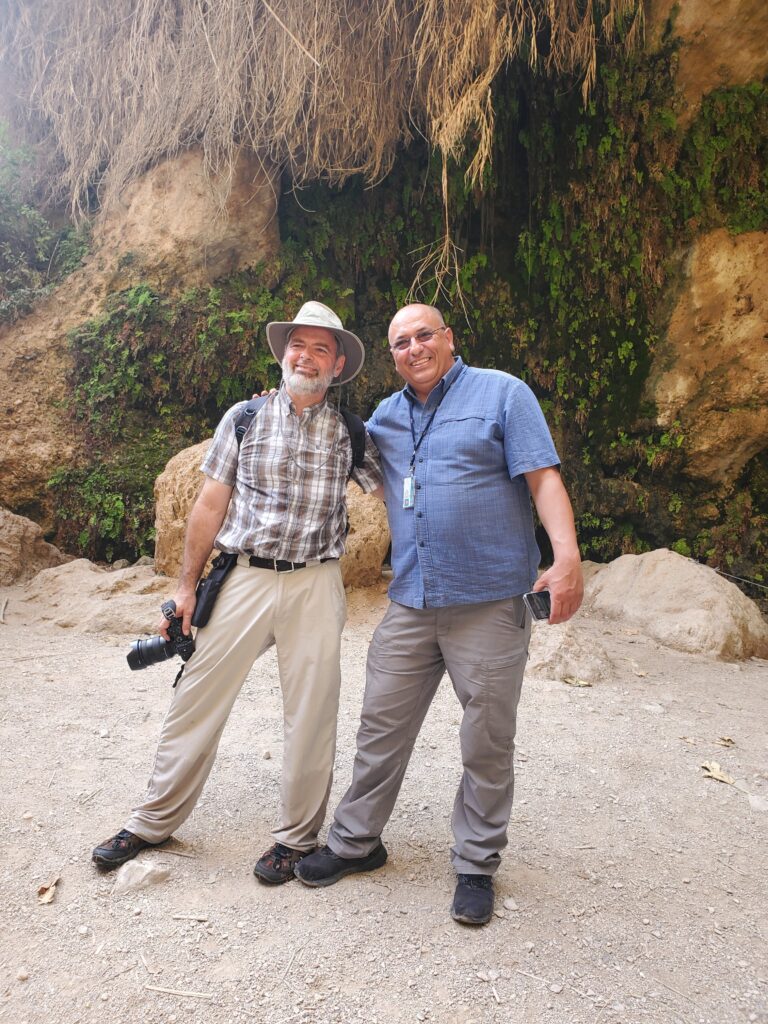
The barren wilderness stretched around us as far as our eyes could see. Occasionally a few shrubs dotted the hillsides and a few more grew randomly along the dry waterbed. The acacia tree is always green and found near water sources. The Israelites were instructed to construct the Ark of the Covenant from this wood as a reminder of their wondering in the wilderness. It is a type of wood that is unaffected by termites or other pests. No detail in the Scripture is without significance. God cares about the details of our lives just as he did about his children that he guided through this wilderness on their way to the promised land.
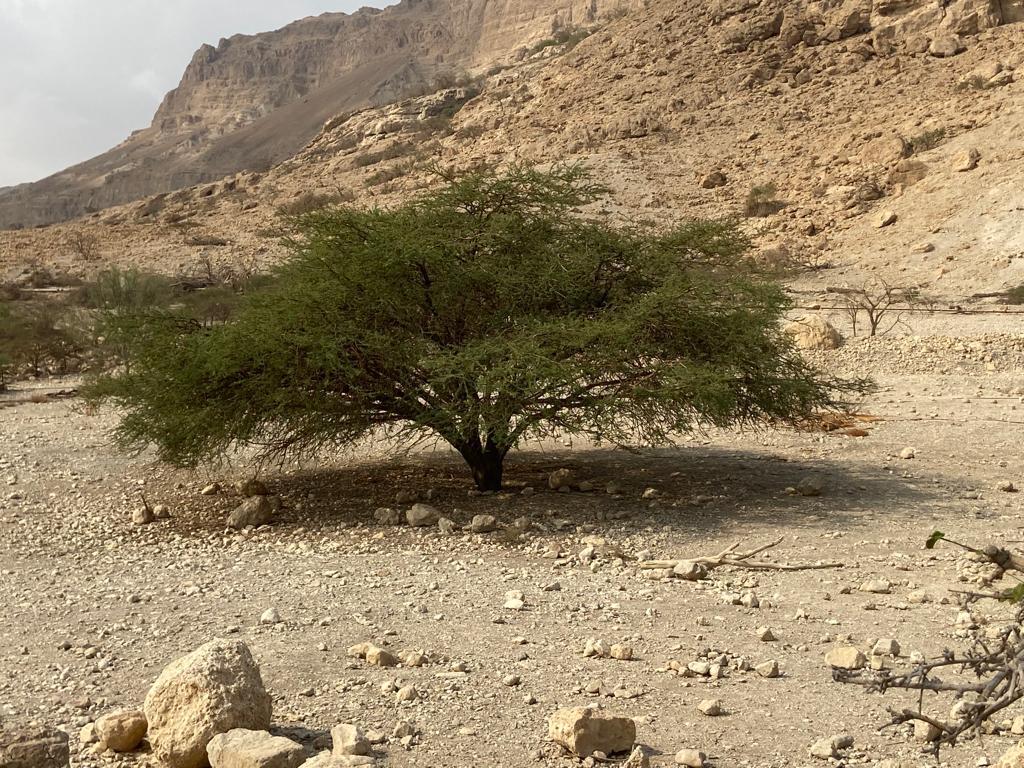
It was a lovely morning to spend hiking through the desert and experiencing shade from the bright desert sun under scrubby desert balsam trees, thorny shrubs, bamboo grasses and other native plants that grew from small cracks in the rocks.
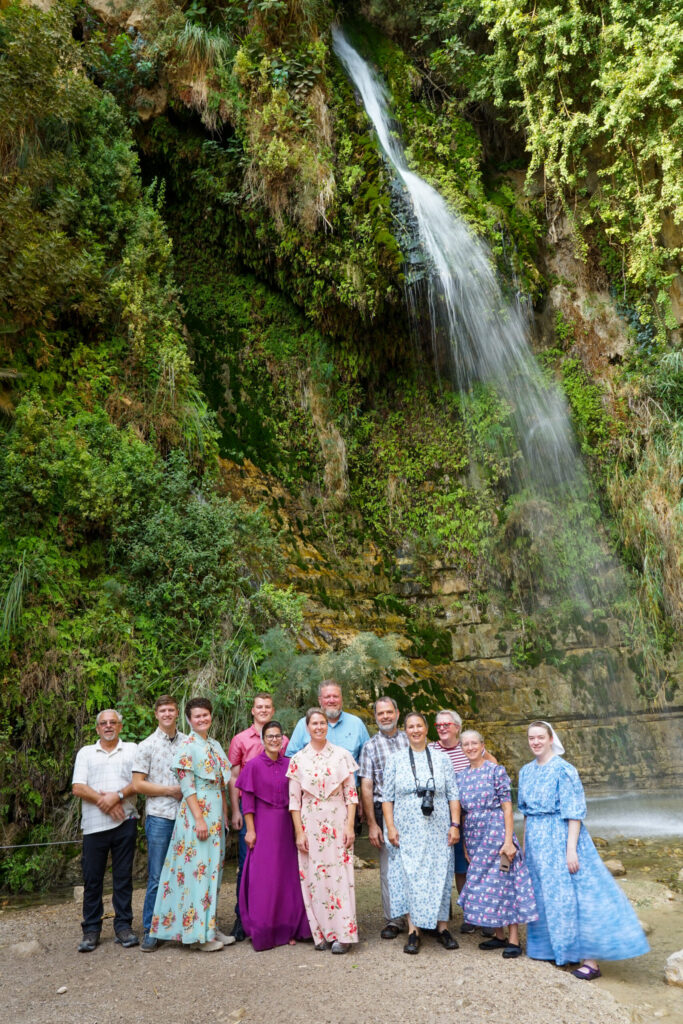
Ein Gedi is Hebrew for “spring of the young goats.” Ein Gedi is a symbol of refreshment. It flows freely from it’s source deep within the earth. God is our Ein Gedi, meaning He is the “Living Water”. We were encouraged to not be a broken cistern with stagnant water but to allow God through the Holy Spirit to enable us to be refreshment to others. When we refresh others, we also become refreshed. We found this refreshment while sitting on the rocks as we sang “As the Deer Panteth” and observed fellow travelers singing along in their native languages. Praising God is universal and we are all in need of Ein Gedi!
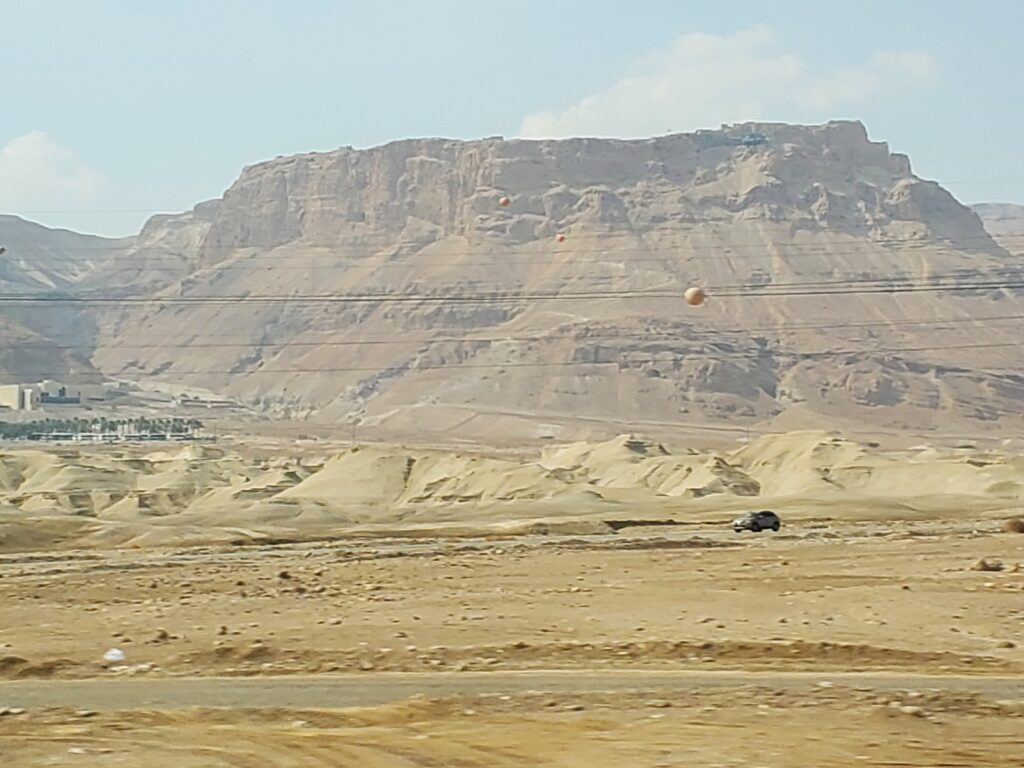
Masada, which is Hebrew for stronghold, is located near the western shore of the Dead Sea and can be reached on foot by a snake path or by cable car. It was the site of the Jewish Zealots’ last stand in AD 72. The stone structure included a quarry, a cistern, several storehouses, elaborate bathing pools, grand porches, a synagogue, and plenty of rooms for 967 people. The rooms were lavishly painted and the floors covered with mosaic tiles. He also wanted to provide a 10 year water supply and had narrow trenches built along the sides of the mound so they could collect water runoff when it rained.
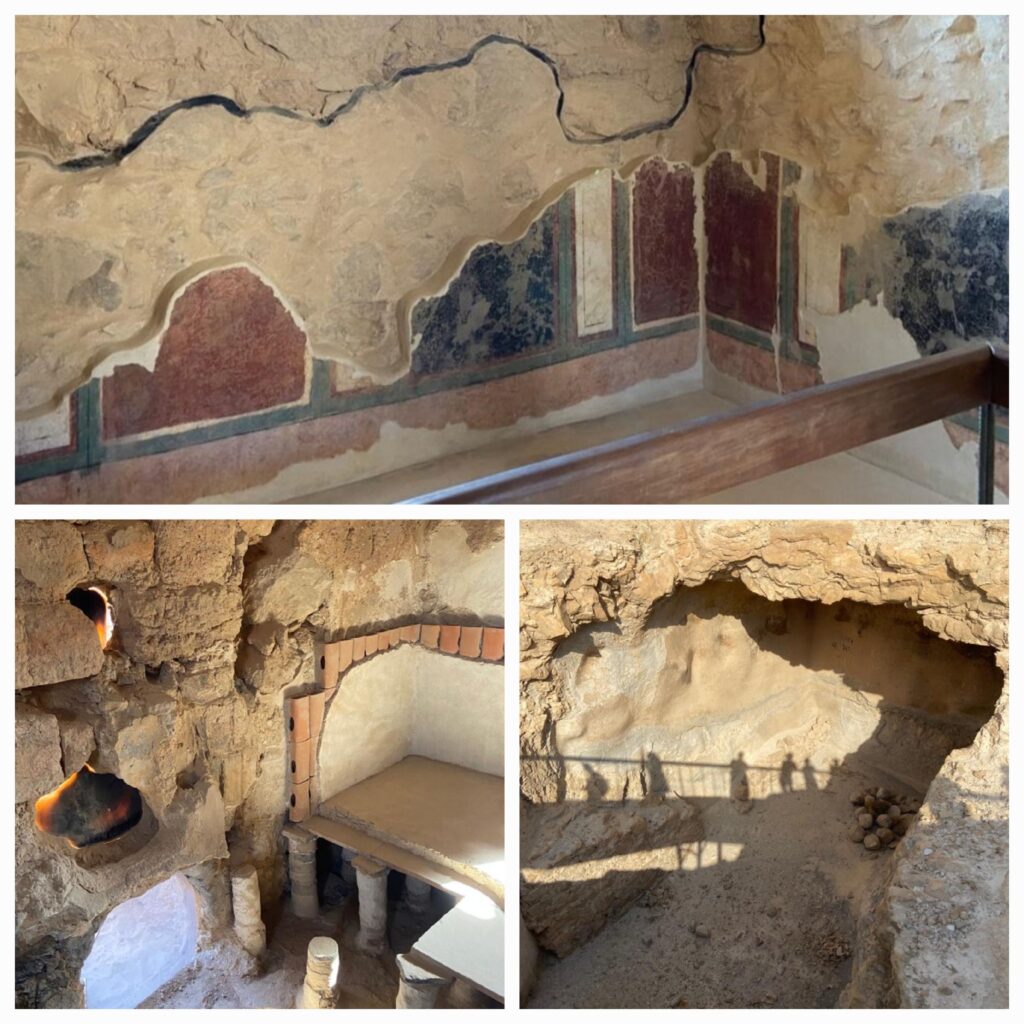
Rather than giving in to defeat when they realized that they were being invaded, they killed the women and children then the last 7 men drew names to determine who should be killed next until they thought everyone had died. History says there were 2 women and 3 children hidden in a cistern who survived and wrote the story as we know it today.
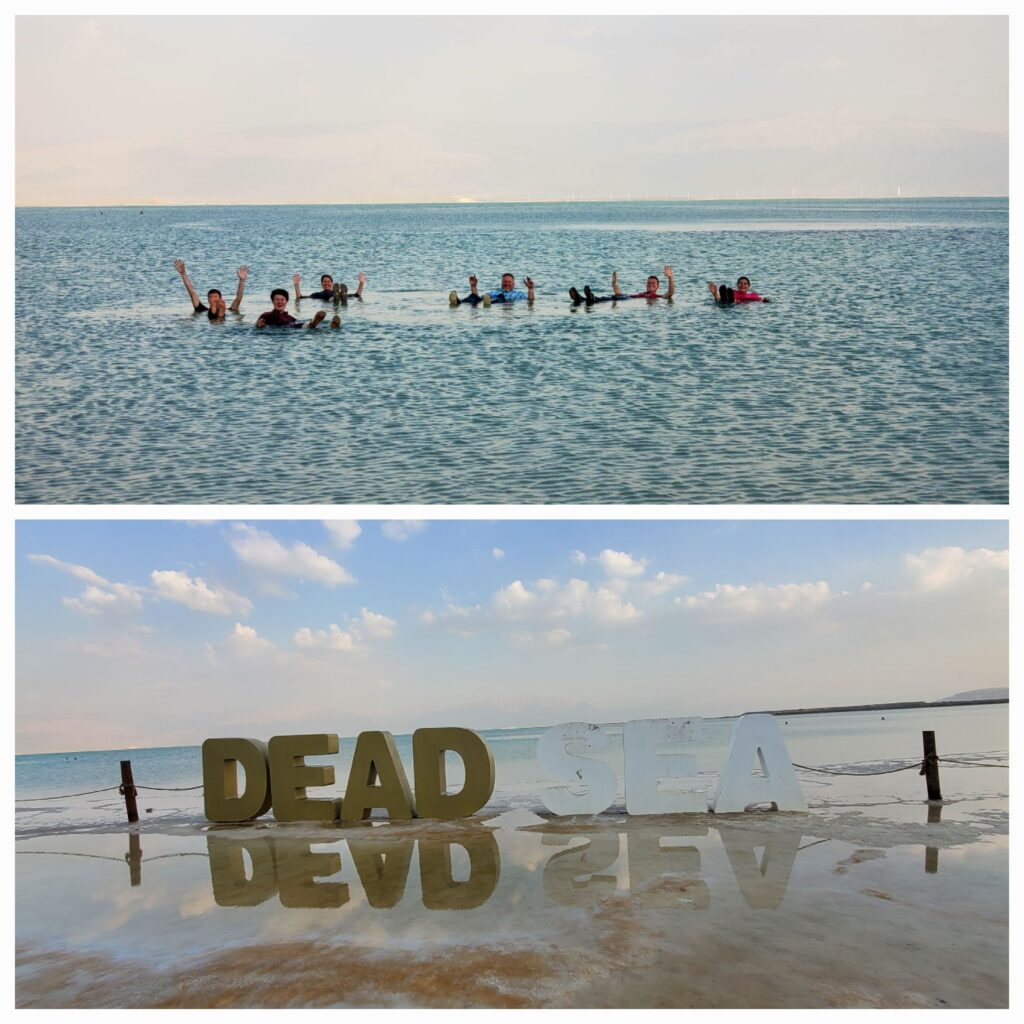
Our next activity was a lovely time of floating in the Dead Sea to refresh our hot, weary bodies with it’s many natural minerals and health benefits.
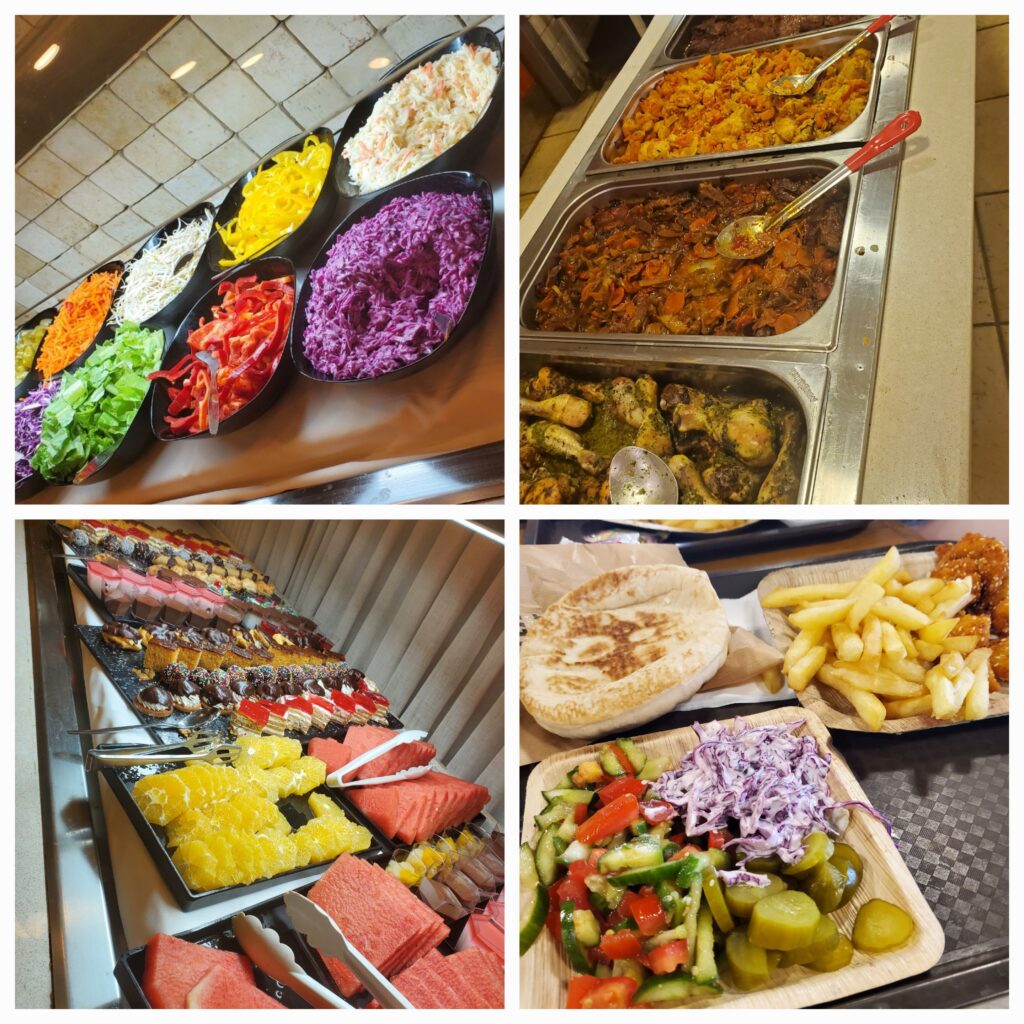
As our souls have been refreshed through visual Biblical teachings, so our bodies have been sustained. We have been served a plethora of delicious fresh vegetables and fruits along with tasty main dishes and dainty desserts.
